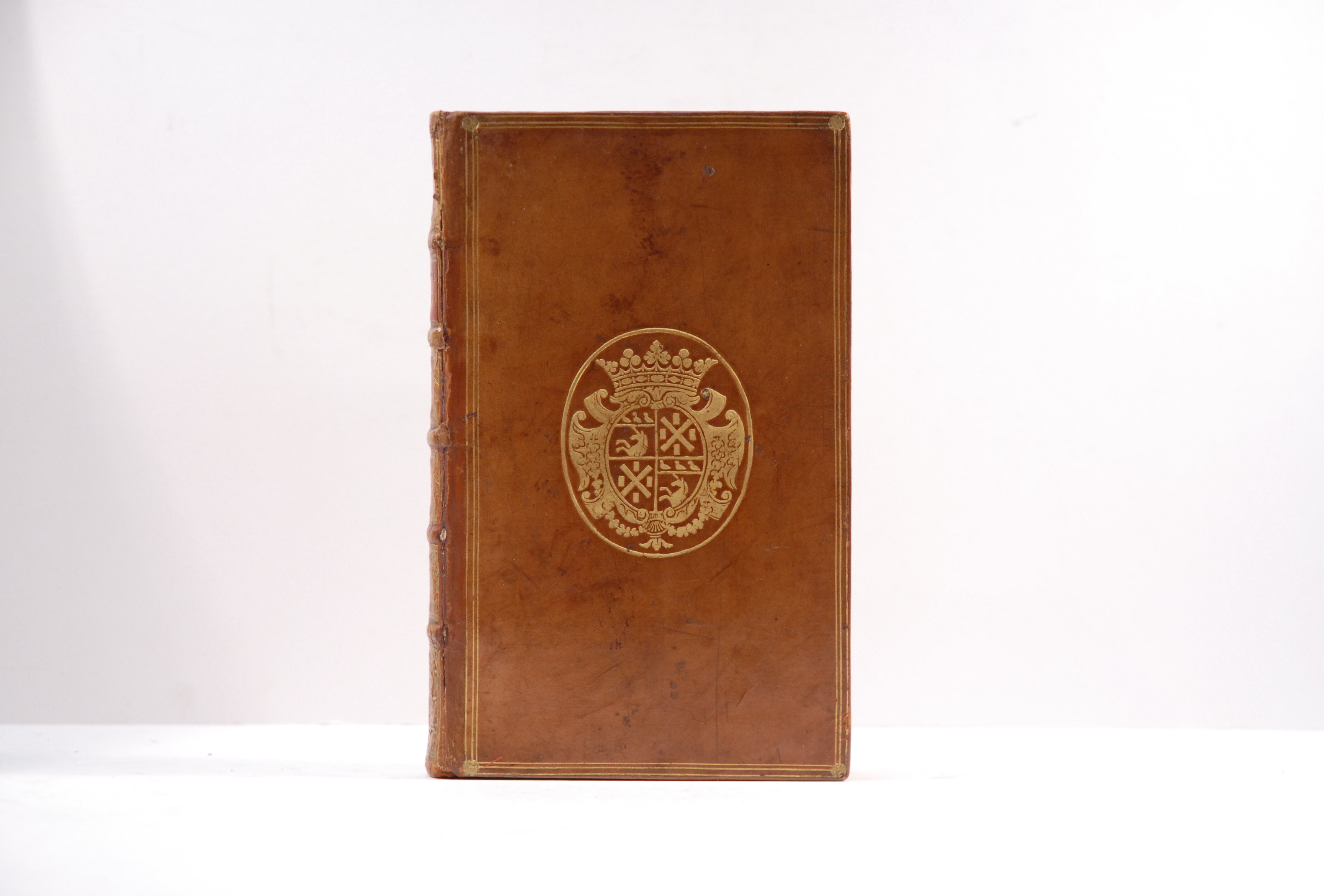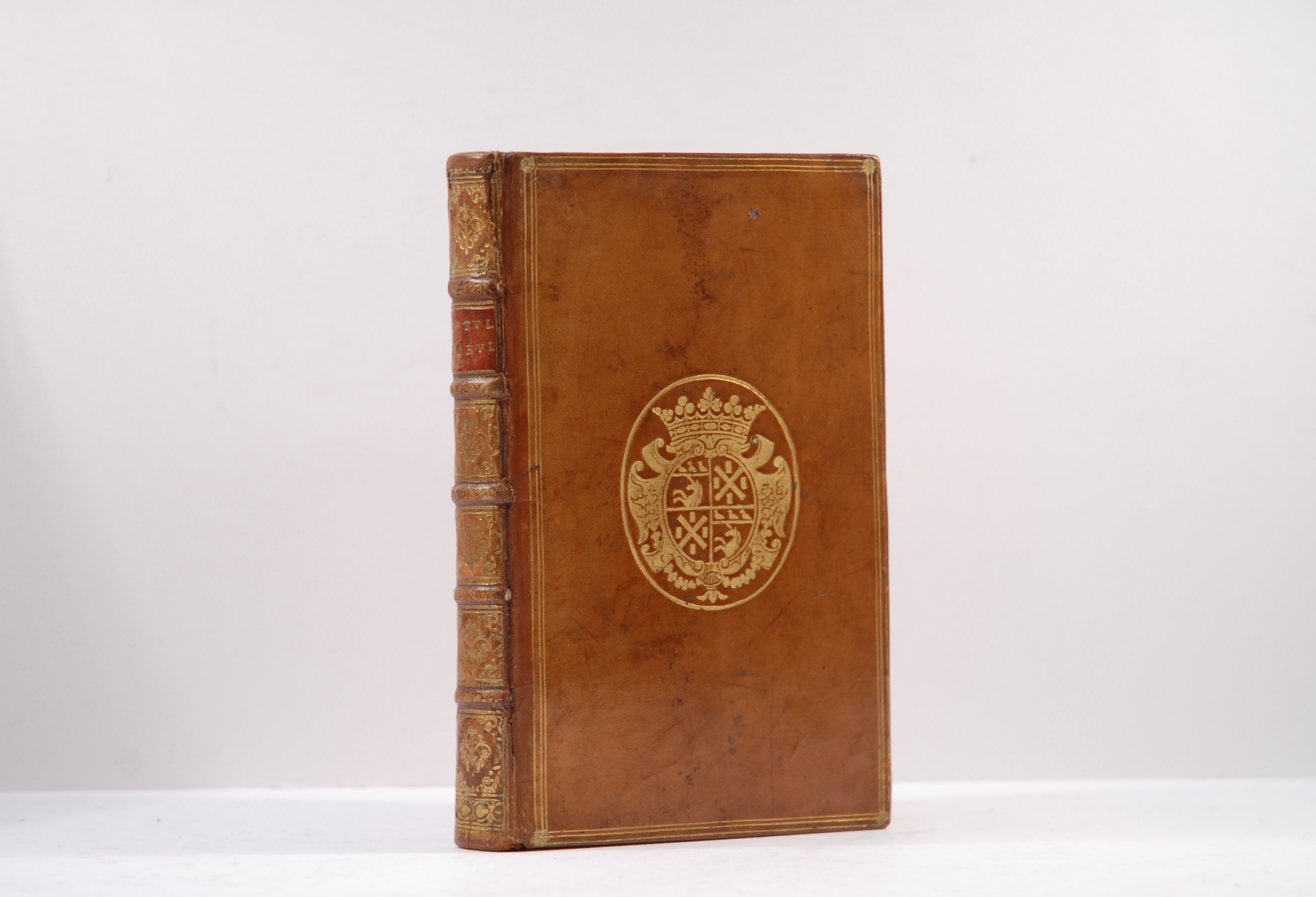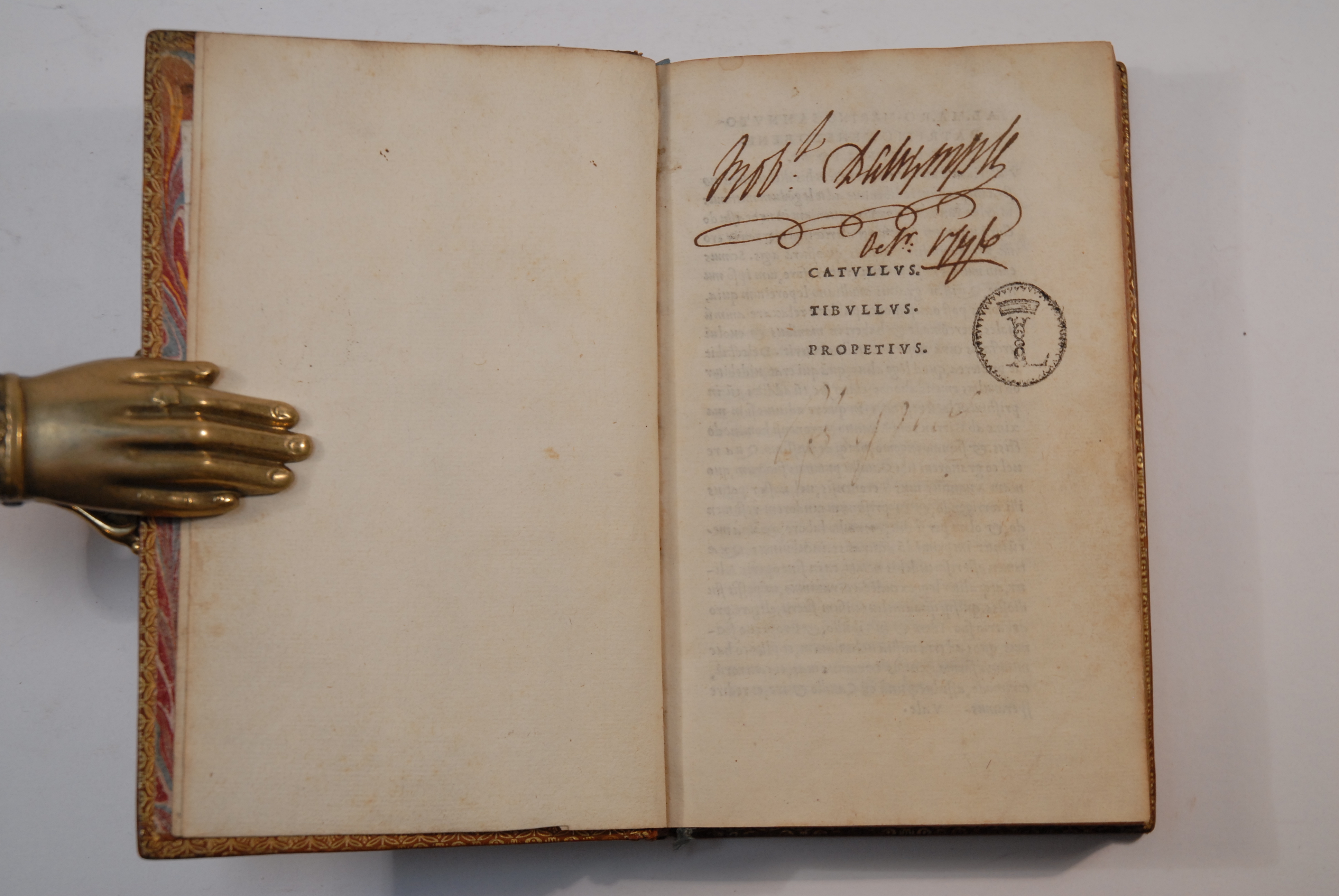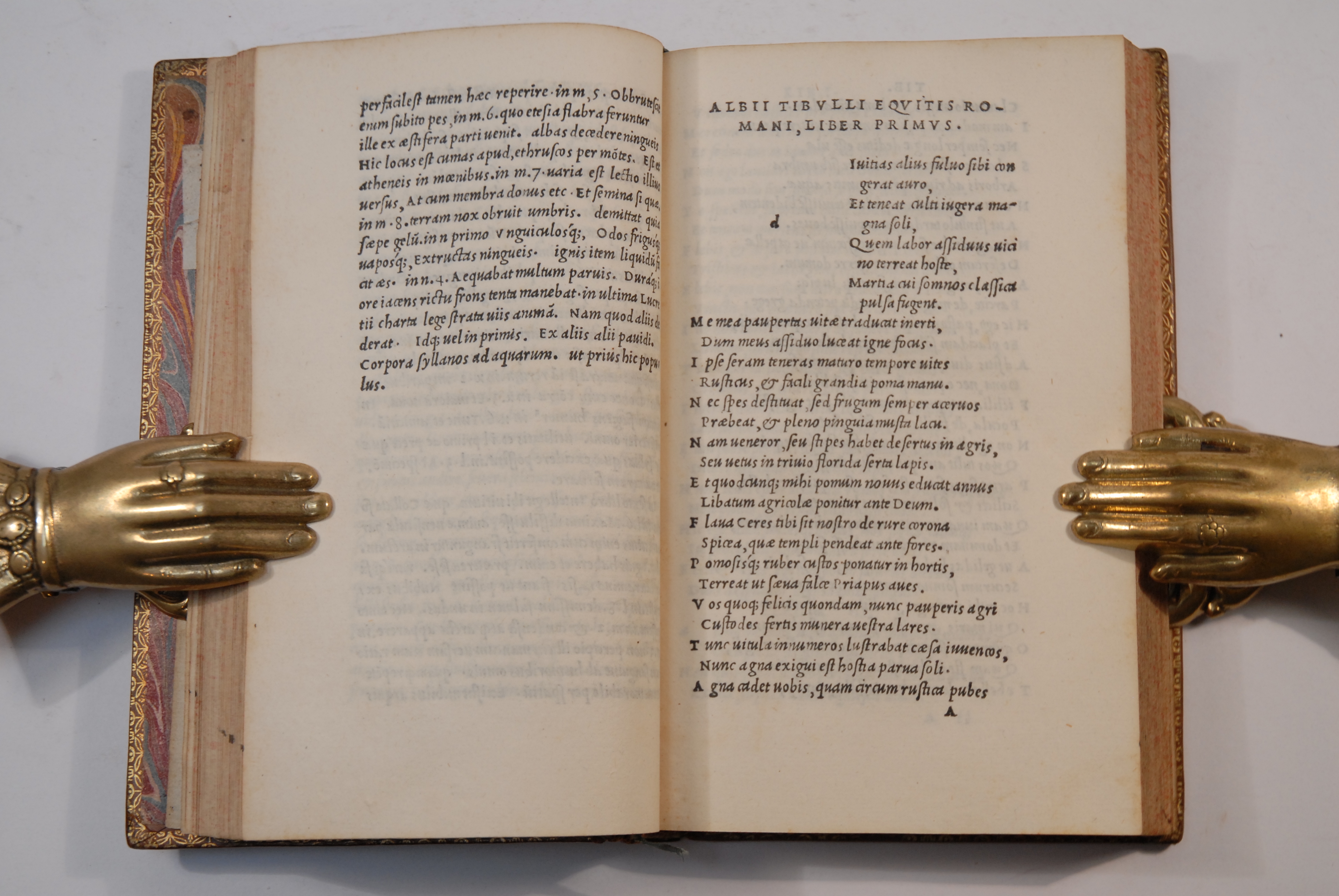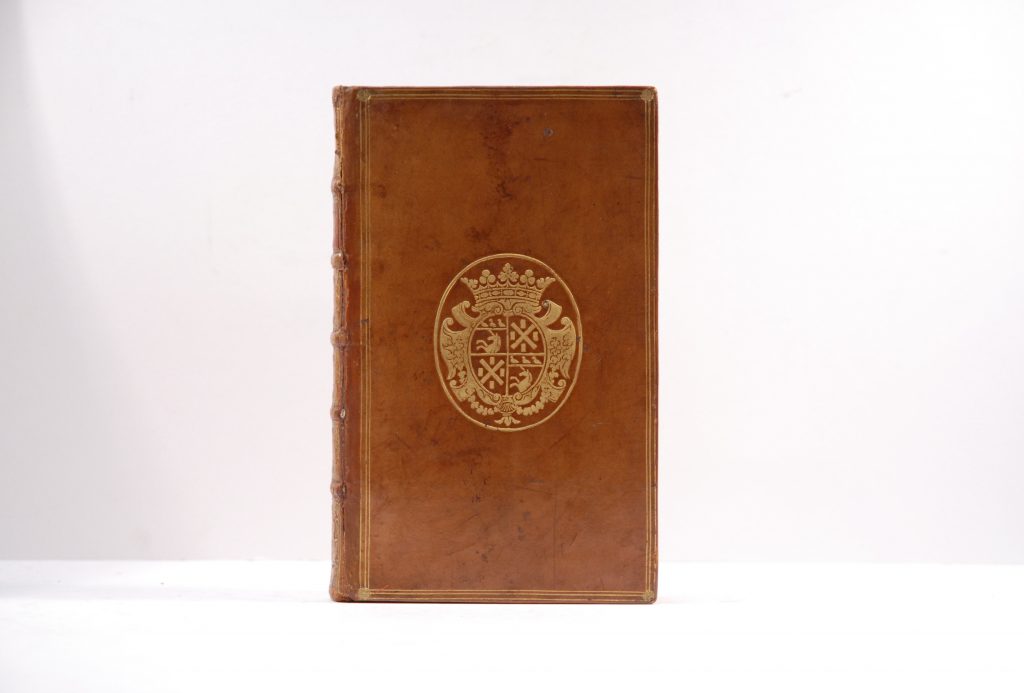CATULLUS, Gaius Valerius, TIBULLUS, Albius, PROPERTIUS, Sextus
EX BIBLIOTHECA LAMONIANA
Catullus. Tibullus. Propertius
Venice, in aedibus Aldo Manuzio, 1502£3,750.00
8vo. Three works in one, first issue with ‘Propetius’ uncorrected on t-p, replacement t-p, corrected, at rear. 44 unnumbered ll., A-F8 F4 + 36 unnumbered ll., A-D8 E4 + 72 unnumbered ll., a-i8. Italic letter, occasional Roman. Very occasional slight foxing, very faint water stain to upper outer corner of first few gatherings, t-p a little bit dusty, autograph show through from t-p to verso. A very good, crisp, well-margined copy in French calf c.1700, marbled paper pastedowns, triple-ruled border gilt, gilt rosettes to each corner, gilt armorial (Lambert de Thorigny) centrepiece, gilt inner dentelles, spine richly gilt, edges speckled red, joints rubbed. Printed label ‘Bibliotheca Lamoniana Y’ and in ink ‘125’, autograph ‘F. Wulff Lund, 5 Mars 1895 17 francs’ on front pastedown, early price ‘£1-5s’ and shelfmarks ‘3’, ‘M’, ‘129’ and ‘132’ to fep, title autograph of Robert Dalrymple 1746, another faded beneath, stamp of coroneted ‘L’ [Lamoignon] to t-p, early inscription ‘25ii’ (binding cost?) to rear ep.
The attractive, gilt armorial binding was produced c. 1700 for Nicolas Lambert, seigneur of Thorigny and Vermont.
Very good, crisp copy of this Aldine first edition, edited by Hieronymo Avantio, of the immortal poems of Catullus, Tibullus and Propertius—the three most important elegiac authors of the late Roman republic and early imperial era. Catullus, Propertius and Tibullus’s poems revealed a new poetic feeling rejecting the heroic character of the epic tradition in favour of a more familiar tone and intimate subjects like love, erotic desire, rejection and mourning. Gaius Valerius Catullus (84-54BC) spent most of his life in Rome where he was acquainted with important authors and politicians. His most famous ‘carmina’, 116 of which are extant, include verse on his love and desire for ‘Lesbia’, and lampoons against public figures like Julius Caesar. Albius Tibullus (55-19BC) was part of the circle of the Roman orator and politician Marcus Valerius Messalla Corvinus. His verse survives in four books, only the first two of which are of safe attribution, and is mostly devoted to his intense and star-crossed love for the married ‘Delia’. Sextus Propertius (c.50-15BC) enjoyed the protection of Maecenas and Augustus and is most famous for his four books of poems, many written for his beloved ‘Cynthia’. This ‘elegiac collection’ format was successfully republished in Europe throughout the century; in the 1590s, several editions appeared in which the texts were ‘castigati’ and ‘expurgati’ of their most obvious sexual references.
This copy was once part of the Bibliotheca Lamoniana. First acquired by Guillaume de Lamoignon in 1650, the library was augmented from 2500 to over 6000 volumes in the following century, especially by Chrétien François II de Lamoignon. Upon his death in 1789, it was sold to the English bookseller Thomas Payne.
Nicolas Lambert (1659-1729) de Thorigny and Vermont was a French politician and bibliophile. Like several members of the Lamoignon family, he held office as a Parliamentary councillor and then president of one of the chambers.
Robert Dalrymple (also Hamilton) (b. 1716) was probably the third son of Sir Robert of Castleton (d. 1734) and grandson of Sir Hew Dalrymple, 1st Baronet of North Berwick.
Fredrik Wulff (1845-1930) was professor of philology at Lund.
USTC 821181; BM STC It. p. 160; Renouard 39:16; Brunet I, 1677: ‘Édition dont les beaux exemplaires sont rares et recherchés’; Dibdin I, 374.In stock


